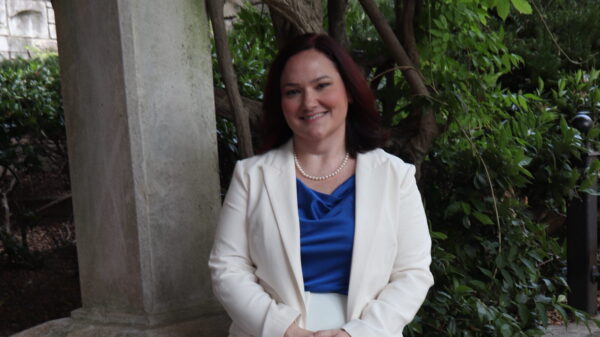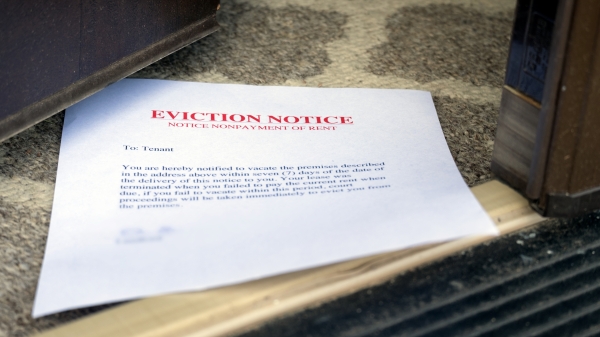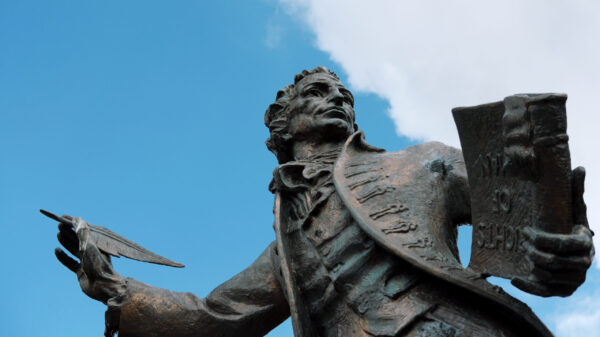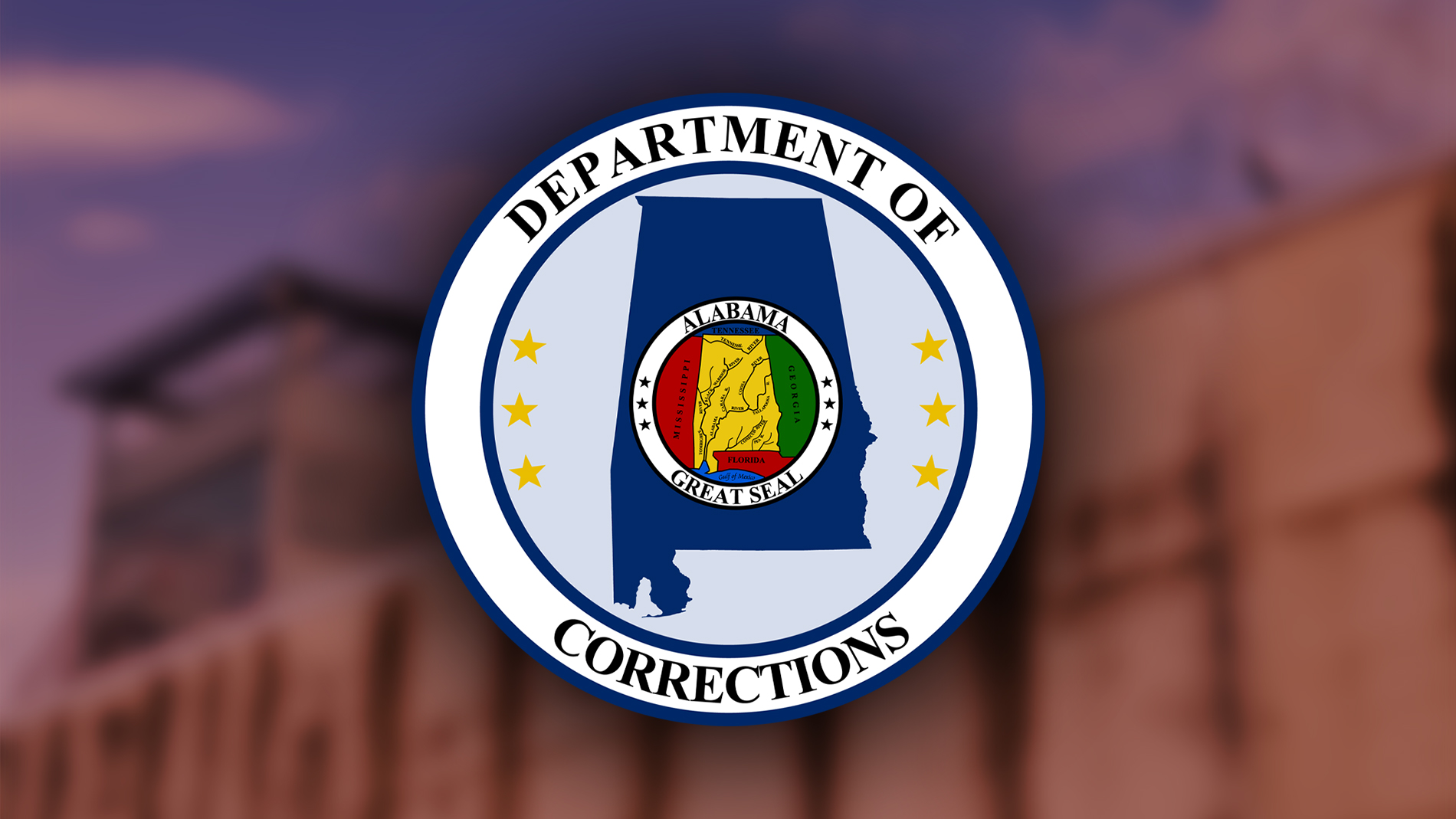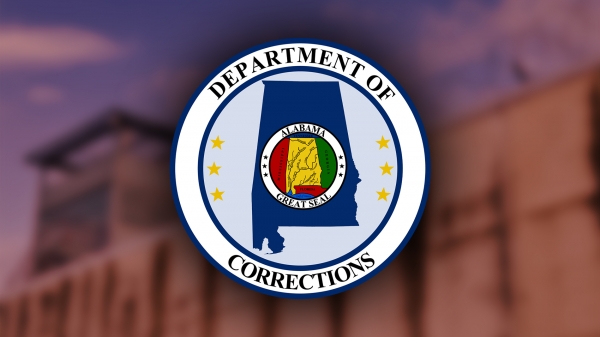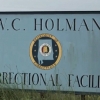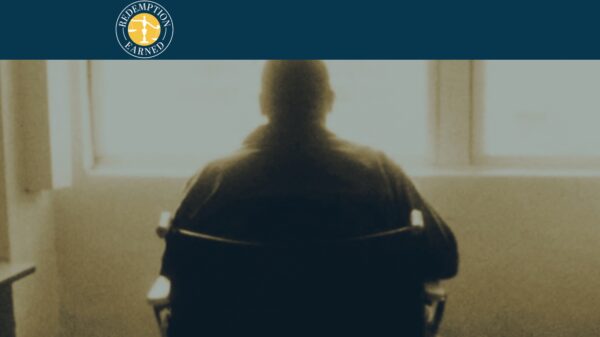A federal complaint filed on Thursday alleges that the family of a deceased incarcerated person had their loved one’s body returned to them in a decomposing state and with the heart missing.
The estate of Brandon Clay Dotson, who died on Nov. 16, is alleging that the Alabama Department of Corrections (ADOC) or another agency that came into contact with the body, took the heart of their loved one and disrespected Brandon’s body.
APR spoke to Robert Dotson, Brandon’s brother, who said he was informed by the warden of Ventress Correctional Facility, Karen Williams, that Brandon was deceased or looked like he was not going to make it. Robert said he vividly recalls asking Williams if his brother was beaten and he said the warden acted outraged that he even asked that. Robert said he’ll “forever” remember Williams’s “disturbing” reaction.
Robert said he moved the conversation along and Williams asks if the family wants to claim the body and he tells her that they do. Robert’s mother, Audrey South, then calls Williams to claim Brandon’s body. South also told Williams that she did not want anyone to touch Brandon’s body or perform an autopsy but Williams said that because he was state property an autopsy had to be performed.
The family finally received Brandon’s body on Nov. 21, five days later, and according to the funeral home that received the body it was decomposing. The family was forced to have a closed-casket funeral due to this on Nov. 25.
“On a scale of one to 10 the decomposing of the body was an eight,” Robert said a funeral home representative told him.
South had also hired an autopsy pathologist, Dr. Boris Datnow, to perform a secondary autopsy after the family received the body. The week following the funeral South contacted Datnow to ask about the autopsy which is when Datnow informed her that he could not complete the autopsy because Brandon’s heart was missing.
“Plaintiffs suspected foul play,” the complaint stated. “In part because of the Alabama Department of Corrections’ extensive and ongoing violations of basic human and constitutional rights, so they retained Dr. Boris Datnow, an autopsy pathologist, to conduct a second autopsy of Mr. Dotson’s body. Upon conducting the autopsy, Dr. Datnow discovered that the heart was missing from the chest cavity of Mr Dotson’s body. The Alabama Department of Corrections – or an agent responsible for conducting the autopsy or transporting the body to his family – had, inexplicably and without the required permission from Mr. Dotson’s next of kin, removed and retained Mr. Dotson’s heart.”
The same day Brandon died he was up for parole and on the hearing minutes posted for that day the Alabama Board of Pardons and Parole denied him parole. It is unknown when Brandon died but there is a chance the Board of Pardons and Parole denied a deceased man parole, again.
According to the lawsuit the entities that likely came into contact with the body include ADOC, The Alabama Department of Forensics, or a medical university under the University of Alabama Systems. They are all listed as defendants in the complaint.
Encompassing the allegations against the prison the defendants include the institution of ADOC itself, ADOC Commissioner Jon Hamm, Chief Deputy Commissioner of Corrections Greg Lovelace, Warden of Ventress Karen Williams, 10 supervisory officers, 10 correctional officers, medical provider YesCare and several staff for YesCare. Mentioned in the lawsuit is the terrible conditions within ADOC facilities, the understaffing and overcrowding of prisons and that Brandon complained of being exposed to gang violence but ADOC not stepping in to help him.
The Alabama Department of Forensic Sciences and director Angelo Dello Manna are also included as defendants in the suit. The ADFS is responsible for conducting autopsies when an individual dies in ADOC custody, the suit says.
Finally the lawsuit names the University of Alabama System, The University of Alabama Health Services Foundation (UAHSF), the University of Alabama at Birmingham Heersink School of Medicine (UABSOM), and 20 UABSOM individuals as defendants. UAHSF assists the Department of Forensics with autopsies and UABSOM uses organs and tissues to educate medical students.
In 2018 the lawsuit says that students from the UABSOM also noticed that many of the organs they were using during their medical training were from incarcerated individuals. The students noted that many of the organs were noticeably far worse in their conditions than others signaling medical neglect likely associated with incarceration.
The students even had an administrator admit that one-third of the organs were from incarcerated people according to the complaint.
“An administrator admitted that 1/3 of the samples in the pulmonary lab are from incarcerated individuals,” the complaint read. “Based on this admission and other information, the UABSOM Students concluded that incarcerated people are 50 times more likely to represent teaching samples than non-incarcerated individuals.”
The suit is calling for the family to have Brandon’s heart returned to them and any profits obtained from his unlawful organ retention to be awarded to the family.
“Defendants’ outrageous and inexcusable mishandling of the deceased’s body amounts to a reprehensible violation of human dignity and common decency,” the complaint says. “Their depraved indifference in returning the body bereft of vital organs and in a revolting state of decay shows utter contempt for the deceased’s memory and for the profound emotional distress wantonly inflicted upon the Plaintiff. No civilized society can tolerate such a barbaric desecration of the dead. That Defendants had the audacity to ransack the body and convert its parts for their own selfish gain only compounds the egregiousness of their conduct. Their brazen theft and exploitation of the helpless deceased shocks the conscience.”


